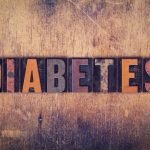Gut and Mood: The Microbiome in Anxiety and Depression
Peter Bongiorno, ND
One key aspect of optimal digestive health relies on its main resident: the gastrointestinal microbiome. The microbiome includes all the microorganisms that inhabit our digestive tract – about 100 trillion bacteria.
A healthy microbiome starts with a vaginal birth: as the baby transcends the birth canal, the probiotics in the mother’s vaginal fluid enters the baby’s mouth and begin their healthful colonization of the digestive tract. It is possible that the high Caesarian birth rate in the United States is a contributing factor to anxiety and depression, due to lack of probiotic transference. For this reason, promoting a healthy microbiome in the next generation may need to start with a greater emphasis on natural childbirth.
Impressive new research is emerging every day regarding the role of the microbiome within the digestive tract lining. The digestive tract itself is a center point of the nervous system, hormonal system, and immune system. It is responsible for the balance of our molecules of emotion (ie, the neurotransmitters), and, as a result, is an important player in mood regulation. Beneficial microflora is also an important part of healthy digestion. Probiotics are known not only to help the digestion, but are key factors in obesity, hormonal balance, healthy kidney function, and much more.
How Does Good Flora Help the Brain?
The microbiome contributes to the bidirectional communication between the digestive tract and the brain. The autonomic nervous system, enteric (gut) nervous system, neuroendocrine system, and immune system all meet in the digestive tract and coordinate healthy physiological and psychological responses.1 A healthy microbiome works to boost mood in a few important ways: by generating healthy levels of brain-derived neurotrophic factor (BDNF)2 and the neurotransmitter gamma-aminobutyric acid (GABA), and by enhancing brain receptors for GABA. Like a warm and gentle blanket for the brain, GABA is a calming amino acid, known to calm areas of the brain that are overactive in anxiety and panic and in some forms of anxious depression.
Research has also shown that hypothalamic-pituitary-adrenal (HPA) axis dysregulation can be reversed by treatment with Lactobacillus and Bifidobacterium.3,4 This research verifies the 2-way communication between the digestive tract and the brain, and reveals how the HPA axis is modulated by the enteric microbiota.
Animal Studies
Animal studies to date clearly show benefits of probiotic supplementation. In a mouse study, animals who received probiotics were, in general, more relaxed than the control mice.5 The probiotic mice had lower release of corticosterone (the murine version of human corticosteroid) in response to stress, as well as lower anxiety and depression-related behaviors. These mice were fed either the probiotic strain Lactobacillus rhamnosus or a microbe-free broth. The probiotic-fed animals showed significantly fewer stress, anxiety and depression-related behaviors than those fed with just broth. In a similar study, rats fed a combination of Lactobacillus and Bifidobacterium displayed a decrease in anxious behaviors.6 Two other animal studies showed interesting phenotypic effects from transplanting microbiota from one animal to another: One of these studies found that switching gut bacteria from an obese mouse to a gnotobiotic lean one increased the expression of genes involved in the stress response in the lean mouse.7 In the other study, oral antimicrobial-induced changes in microbiota led to increased expression of BDNF and exploratory behavior, whereas the reverse occurred (reduced exploratory behaviors) when germ-free mice were colonized with gut bacteria from these same mice.8
Human Studies
Human studies are limited by comparison, but the ones available corroborate findings that replenishing a healthy microbiome can confer psychological benefit. In a double-blind, placebo-controlled trial of healthy, non-anxious, or depressed subjects, a 30-day administration of Lactobacillus and Bifidobacterium lowered psychological distress and depression, decreased anger and hostility, lessened anxiety, and improved problem-solving, compared with the placebo group.6
In another double-blind, placebo-controlled trial, healthy subjects were fed either a probiotic-containing milk drink or placebo for 3 weeks, and mood and cognition were assessed before treatment and after 10 and 20 days of consumption. Subjects who initially scored in the lowest third for depressed mood showed significant improvement in symptoms after probiotic treatment.9
In a pilot study, patients with chronic fatigue (who often have abnormal gut microflora) were given Lactobacillus casei daily for 60 days. Using the Beck Depression and Anxiety Inventories, these patients reported far fewer anxiety symptoms compared to the placebo group.10
Yeast and the Microbiome
While a healthy microbiome appears to promote a positive mood, an unhealthy one, full of Candida albicans and its associated toxins, may do the opposite. As was suggested by a case study in which eradication of a yeast infection led to psychiatric improvement,11 an overgrowth of yeast may alter the ability to absorb nutrients and stimulate hypersensitivity reactions of toxin byproducts, which translates to inflammation in the body. Intestinal inflammation has been observed to contribute to mood disorders.12
Probiotics Dosage and Applications
Identified in the 1800s as a result of Ilya Ilyich Mechnikov’s ground-breaking work, probiotics were virtually ignored until recently, and such, represent a relatively new field of research. Human studies have wrangled with various probiotic dosing and strains; consequently, study comparisons aren’t possible until we have more studies and dosing procedures become standardized. One of the human studies described above utilized a range of 6.5 to 24 billion colony-forming units (CFUs) of Lactobacillus casei per day, while another supplemented with 3 billion colonies of both Lactobacillus helveticus and Bifidobacterium longum per day. In our clinic, we use a combination of Lactobacillus acidophilus and Bifidobacterium lactis, at a dose of 4 to 8 billion CFUs QD to TID.
Given that antibiotics have been observed, at least in animals, to disrupt the microbiome, increase hippocampal BDNF, and produce anxious behaviors,13 it is recommended to dose probiotics during any antibiotic treatment. Probiotics may be contraindicated in digestive tract issues when there is active bleeding (such as active ulcerative colitis or Crohn’s disease) due to the possibility of bacteria moving into the bloodstream at a high volume. This is highly unlikely, but should be monitored in severely damaged GI tracts and/or immunocompromised patients.14,15
Probiotic Toxicity
While probiotic studies have not demonstrated toxicity, the concept of using live bacteria in foods or food supplements is also relatively new and evolving. Controlled clinical trials on the use of probiotics have demonstrated safe use.16 I recommend using supplements that are purchased from high-quality companies that provide evidence for absence of any pathogenic germs, as these have been detected in inferior-quality products.17
Recommendations for a Healthy Microbiome
On their own, probiotics may not be replacing antidepressants anytime soon. However, substantial research is coming out every day showing the benefits of improving gut flora to foster the best mental health. Along with the naturopathic tenets of good sleep, healthful diet, and managing stress, probiotics can help improve digestion in your patients, lower Candida, decrease inflammation, and encourage positive moods. Here are some recommended steps your patient can take to keep their microbiome healthy:
- Avoid excess sugary foods: This will help prevent yeast build-up.
- Good quality sleep: A sound night of sleep is key for a healthy microbiome and repair of the intestinal lining.
- Meditation and relaxation: Meditation and quality down-time are important to keep the body in the “rest and digest” mode instead of stress mode. Stress reduces circulation to the gut, which compromises a healthy microbiome.
- Eat foods with fiber: Dietary fiber (eg, vegetables, fruits, psyllium, flax, and inulin) feed the beneficial bacteria and support the proper balance of short chain fatty acids in the colon.
- Eat probiotic foods: There are many natural foods full of probiotics. In my opinion, foods are superior to supplements for long-term health. Yogurt is the most familiar source of probiotics, although for people who are lactose-intolerant or dairy-sensitive, there are other available choices, including natto, kim chi, miso, and sauerkraut. Homemade sauerkraut is better than store-bought, since the pasteurization of store-bought sauerkraut kills some of the healthful bacteria.
- Consider a probiotic supplement: For patients with health issues, it sometimes makes sense to use a supplement along with foods. A high-quality supplement should contain both lactobacilli and bifidobacteria.
 Peter Bongiorno, ND, LAc, is President of the New York Association of Naturopathic Physicians and has private practices in New York. Peter trained at Bastyr University, and researched at Yale University and the National Institutes of Health before attending med school. He teaches an integrative medicine elective at the Mt Sinai School of Medicine and authored How Come They’re Happy and I’m Not?: The Complete Natural Program for Healing Depression for Good. His upcoming book for practitioners – Holistic Therapies for Anxiety and Depression – can be preordered on Amazon. Visit drpeterbongiorno.com, InnerSourceHealth.com, and @drbongiorno for naturopathic mental health updates.
Peter Bongiorno, ND, LAc, is President of the New York Association of Naturopathic Physicians and has private practices in New York. Peter trained at Bastyr University, and researched at Yale University and the National Institutes of Health before attending med school. He teaches an integrative medicine elective at the Mt Sinai School of Medicine and authored How Come They’re Happy and I’m Not?: The Complete Natural Program for Healing Depression for Good. His upcoming book for practitioners – Holistic Therapies for Anxiety and Depression – can be preordered on Amazon. Visit drpeterbongiorno.com, InnerSourceHealth.com, and @drbongiorno for naturopathic mental health updates.
References:
- Foster JA, McVey Neufeld KA. Gut-brain axis: how the microbiome influences anxiety and depression.Trends Neurosci. 2013;36(5):305-312.
- Bercik P, Verdu EF, Foster JA, et al. Chronic gastrointestinal inflammation induces anxiety-like behavior and alters central nervous system biochemistry in mice. Gastroenterology. 2010;139(6): 2102-2112.
- Gareau MG, Jury J, MacQueen G, et al. Probiotic treatment of rat pups normalises corticosterone release and ameliorates colonic dysfunction induced by maternal separation. Gut. 2007;56:1522-1528.
- O’Mahony L, McCarthy J, Kelly P, et al. Lactobacillus and bifidobacterium in irritable bowel syndrome: symptom responses and relationship to cytokine profiles. Gastroenterology. 2005;128(3):541-551.
- Bravo JA, Forsythe P, Chew MV, et al. Ingestion of Lactobacillus strain regulates emotional behavior and central GABA receptor expression in a mouse via the vagus nerve. Proc Natl Acad Sci U S A. 2011;108(38):16050-16055.
- Messaoudi M, Lalonde R, Violle N, et al. Assessment of psychotropic-like properties of a probiotic formulation (Lactobacillus helveticus R0052 and Bifidobacterium longum R0175) in rats and human subjects. Br J Nutr. 2011;105(5):755-764.
- Ridaura VK, Faith JJ, Rey FE, et al. Gut microbiota from twins discordant for obesity modulate metabolism in mice. Science. 2013;341(6150):1241214.
- Bercik P, Denou E, Collins J, et al. The intestinal microbiota affect central levels of brain-derived neurotropic factor and behavior in mice. Gastroenterology. 2011;141(2):599-609, 609.e1-3.
- Benton D, Williams C, Brown A. Impact of consuming a milk drink containing a probiotic on mood and cognition. Eur J Clin Nutr. 2007;61(3):355-361.
- Rao AV, Bested AC, Beaulne TM, et al. A randomized, double-blind, placebo-controlled pilot study of a probiotic in emotional symptoms of chronic fatigue syndrome. Gut Pathog. 2009;1(1):6.
- Rucklidge JJ. Could yeast infections impair recovery from mental illness? A case study using micronutrients and olive leaf extract for the treatment of ADHD and depression. Adv Mind Body Med. 2013;27(3):14-18.
- Harrison NA, Brydon L, Walker C, et al. Inflammation causes mood changes through alterations in subgenual cingulate activity and mesolimbic connectivity. Biol Psychiatry. 2009;66(5):407-414.
- Denou E, Jackson W, Jun Lu, et al. The Intestinal Microbiota Determines Mouse Behavior and Brain BDNF Levels. Gastroenterology. 2011;140(5 Suppl 1):S-57.
- Land MH, Rouster-Stevens K, Woods CR, et al. Lactobacillus sepsis associated with probiotic therapy. Pediatrics. 2005;115(1):178-181.
- Kochan P, Chmielarczyk A, Szymaniak L, et al. Lactobacillus rhamnosus administration causes sepsis in a cardiosurgical patient–is the time right to revise probiotic safety guidelines? Clin Microbiol Infect. 2011;17(10):1589-1592.
- Snydman DR. The safety of probiotics. Clin Infect Dis. 2008;46 Suppl 2:S104-S111.
- Wassenaar TM, Klein G. Safety aspects and implications of regulation of probiotic bacteria in food and food supplements. J Food Prot. 2008;71(8):1734-1741.









